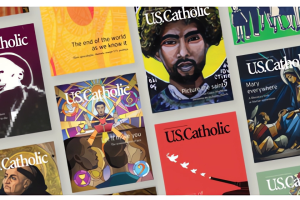We first wrote nearly three months ago about a controversy on the campus of Vanderbilt University, where Catholics students balked at signing a university non-discrimination policy that would certify their student organization does not exclude potential members or those seeking leadership positions for any reason, including religion.
The Catholic students, who have received support from other groups outside of their campus in their fight against the policy, have decided to no longer be a student organization rather than to agree to the university policy. The story continues to gain traction as another example of “religious freedom” being restricted for Christians in the United States, and has generated some misleading arguments that Catholic students would be forced to allow non-Catholics to lead their organization.
But no one is saying the Catholic students must have leaders who are of different faiths. The university’s policy only requires student organizations to be open to people of all faiths, not to recruit them as members. For a Catholic student group to have non-Catholic leaders, several things would first have to take place:
1. Non-Catholic students would have to want to join a Catholic student group. I don’t know about students today, but when I was in college I was fairly busy with classes, homework, and having a job, so my time for student organizations was limited. How many non-Catholics would have time or the interest to join a faith-based group when the group’s faith is different from their own?
2. Assuming the non-Catholic student does want to join the Catholic group, then they’d have to run for a leadership position. Again, based on the criteria above and the time commitment, this seems unlikely.
3. If the first two unlikely steps do play out, then the rest of the organization would have to elect the non-Catholic student to a leadership position. The university policy only states that groups can’t discriminate against those who wish to be considered for leadership positions. The students can still choose their own leaders, and if say, four Catholics and one Jewish student are campaigning to be the Catholic student organization’s president, the students can still elect one of the Catholics. The university only wants them to allow the Jewish student to be able to run if they so choose.
The real negative of opposing the non-discrimination policy is that it shows a lack of openness on the part of Catholic students toward their non-Catholic brothers and sisters. Those non-Catholics who do want to join a Catholic group could present positive opportunities to teach the faith and to learn about others' beliefs.
What if a non-Catholic wanted to join the group to learn more about Catholicism because they were considering the possibility of converting? Being turned away because of their lack of faith might forever turn them off to the Catholic Church. And what if a Jewish student did want to join the Catholic organization, and perhaps invited Catholics to join their Jewish student organization, as a way of building interfaith relationships?
College is perhaps the best time in our lives to explore what others believe, to learn about different faith traditions, and to discover where God is calling us in our own lives. Non-discrimination policies shouldn’t be seen as a hurdle to practicing one’s faith in college, but as an obvious component of our efforts to welcome, evangelize, and spread the Gospel.











